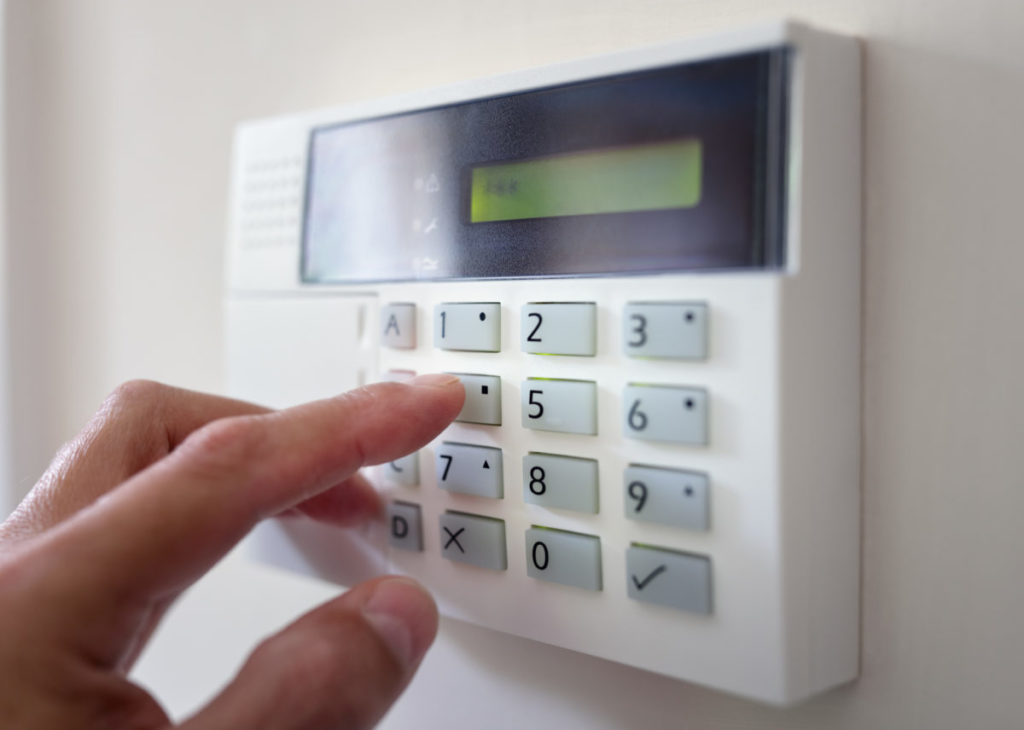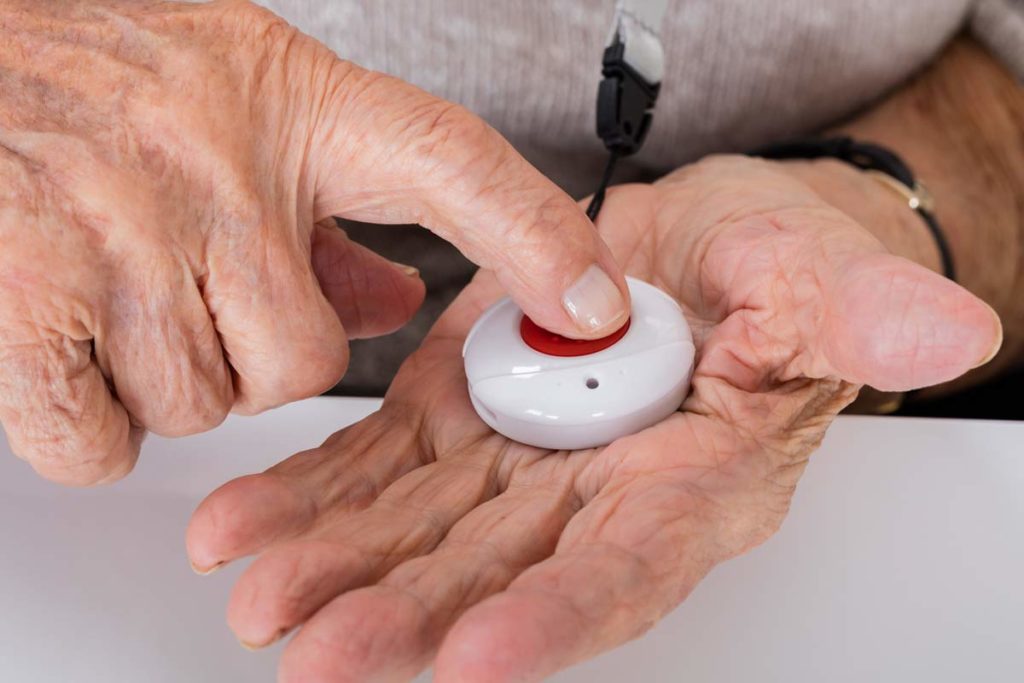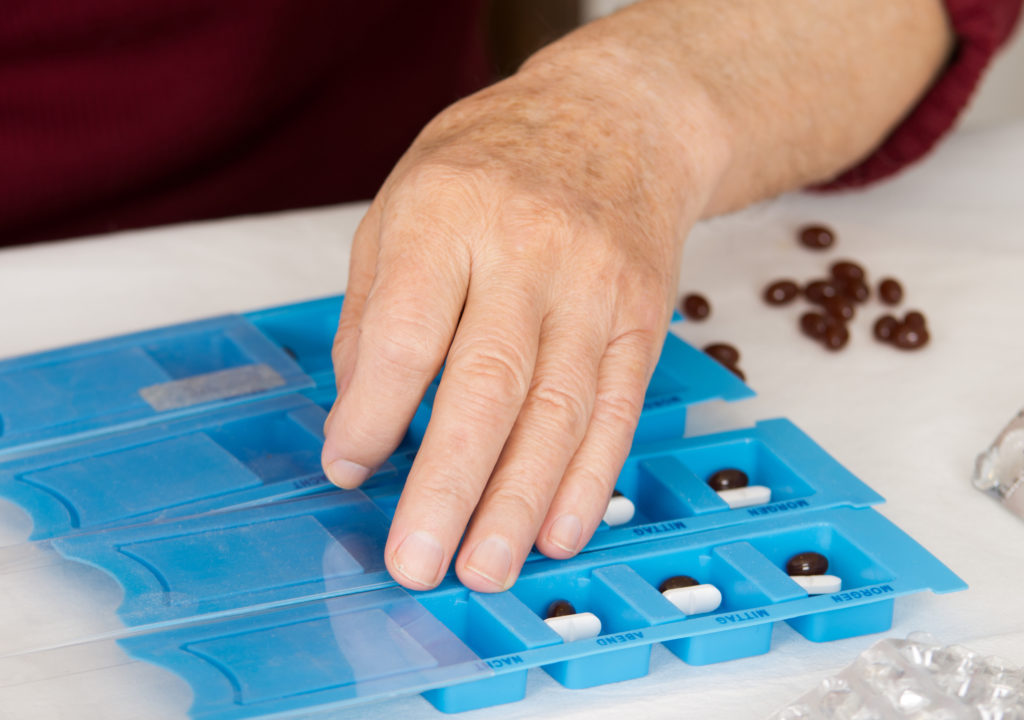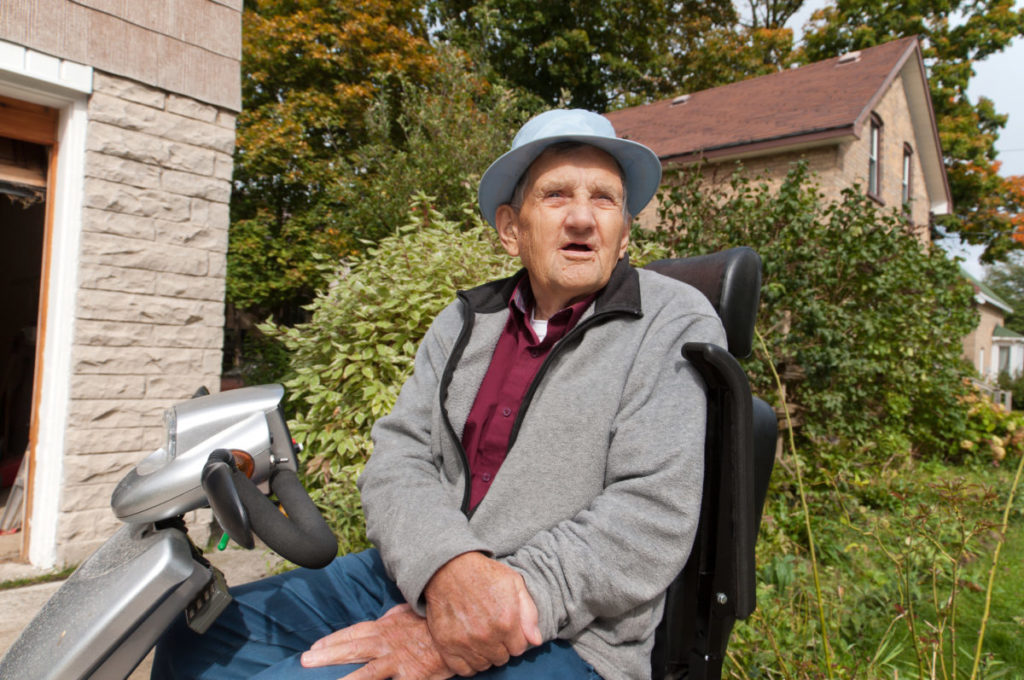Technology Solutions to Assist Independent Living

Technology geared towards helping seniors’ daily lives is a growing segment that promises to provide solutions specific to senior needs and maintain a decent quality of life. Any assistive technology device or gadget that makes life easier or more efficient can be a solution to independent living.
A part of independent living as we age at home doesn’t mean we have to do it all ourselves.
Security, mobility, and health are top concerns for seniors when considering aging at home. Technological products that provide additional safety and security, in an easy-to-use manner are a great addition to a senior’s home. You may consider investing in one of the following items to support you in independent living:

Home alarm system (provide peace of mind and security if you feel vulnerable to intruders)

Medical alert systems (24/7 emergency contact, fall-detection will provide added security in the event of a medical emergency or fall)

Medical tracking gadgets (mobile devices that allow medical feedback and, in some cases, fall detection so you can still stay independent but feel safe knowing someone will come and assist if needed)

Cell phones or tablets (staying in contact with family, friends, and loved ones while you are out and about, provides added security as well as staying connected to the outside world)

Medication dispensing systems (takes the worry and fuss out of medication organizing and administration so you don’t overdose or forget to take your medication)
Home Modifications and Products to Assist Independent Living

As we age at home, we may find daily chores and activities more difficult, especially if our mobility becomes impaired. Luckily, there are hundreds of specialized products that can be purchased or rented from online stores or local shops that can make life easier at home as we age. Depending on your specific medical or mobility condition, you can modify your home with replacement products for every facet of daily living and ensure a good quality of life. To give you an idea of what solutions are available, we’ve listed a few below.
Bathroom Accessories
(such as toilet aids, shower seats or chairs, grab bars, walk-in tubs, showers, bathing aids, etc.) to help in toileting and reducing any risks of falling during bathing
Bedroom Accessories
(i.e. adjustable beds)
Grooming And Personal Care Items
(i.e. dressing aids, specialist footwear, adaptive womenswear and menswear, specialized grooming accessories)
Mobility Products And Accessories
(scooters, walking aids, wheelchairs, ramps and other accessories)
Climbing Aids
(stair lifts, home lifts, and other stair climbing solutions)
Recreational Items
(accessible gardening items, adapted sports items)
Kitchen Dining
(eating and drinking aids, easy utensils and food prep, kitchen modifications, specialized appliances)
Lounge
(rise and recliners and other specialized armchairs)
In addition, there are many companies that specialize in remodeling and renovations for senior living. That may mean widening doorways, changing door handles, relocation of bathrooms to main level living space, remodeling kitchen counters and shelves for easy access, ramp installations, etc. Making your living space practical and suited to your needs as you age is a very important part of living independently.
Transportation Solutions for Independent Living

The ability to drive for many is an important part of staying independent as it’s usually a part of a life-long routine. At some point, however, many seniors will need to reduce or stop driving altogether. This isn’t an easy time as driving is a major source of independence and freedom of mobility as well as self-esteem and convenience.
Finding other transportation solutions are important too, so you can keep active during your senior years. The last thing you want to do is feel tied down and isolated because you can’t drive or get a ride. Friends and family members may be able to drive you to your appointments and to run errands but there are other various transportation solutions available. Also, transportation doesn’t have to be expensive. There are several cost-efficient options for transportation for seniors.
Public transportation is a cost-efficient alternative, even if you are a senior citizen using a walking aid or a wheelchair. By law, every public bus is required to have a wheelchair lift on it, and every train must have one wheelchair accessible railcar. Trips for medical purposes can sometimes be covered by insurance such as Medicaid. It’s worth checking if visits to doctor appointments are covered by your medical insurance.
Friends and family members may be able to drive you to your appointments and to run errands but there are other various transportation solutions available.
If you are a senior with a disability (under the practical definition) the Americans with Disabilities Act (ADA) guarantees that wherever there is public transportation service there must also be a paratransit or complementary service for your use. Paratransit vehicles are usually vans that are easily wheelchair and handicapped accessible. Also, the cost for the complementary system can never be more than twice the fare for the normal public transportation (i.e. if a public bus costs $2.00 per ride, then the paratransit system cannot cost more than $4.00 for the same ride).
Keep in mind that there is a special application process to qualify for paratransit services. The Older Americans Act (OAA) allocates funds to state and territorial units to ensure that each supports an Area Agency on Aging. Your local Area Agency on Aging can serve as an invaluable resource when looking for alternative means of transportation as they organize transportation to various locations and places around town.
As a senior, you may find local senior and social service centers organize frequent group trips to such places as grocery stores, medical facilities, or the library. Perhaps it doesn’t offer the same flexibility as paratransit and public systems; however, they provide an economical and organized transportation option. For example, they may have organized trips to the library every Friday morning at 10 am or to the grocery store, every Tuesday morning at 11 am. This alternative also provides a social opportunity to travel with a group of peers with similar needs.
Give Your Loved Ones The Best Care
Caring for parents as they age is never easy. The help from home care services allows you to maintain your relationship while providing the best care possible.
In-Home Assistance Solutions for Independent Living

A part of independent living as we age at home doesn’t mean we have to do it all ourselves. Even if you’ve modified your home, assistive technology and devices, use products that are adapted and specialized for seniors and you’ve figured out how to get around and get to your appointment and do your errands, you may still need to get some extra help.
A 2017 survey revealed that almost one-third of seniors have no emergency savings and 70 percent have less than six months of savings
The important thing to remember is to enjoy your golden years and sometimes it’s just a better solution to get someone to help so we are free to focus on the things we enjoy and can do. Depending on what you need help with there are many caregivers that specialize in assisting the elderly in their own homes.
Here are some of the options available to you when thinking about the type of help you may require.
In-Home Caregiver
Private caregivers, otherwise known as private duty in-home caregivers, live-in caregivers, and private duty companions, specialize in assisting seniors in their everyday lives. They can assist with the everyday type of tasks such as:
- Cooking
- Housework (dusting, vacuuming, cleaning bathrooms, laundry, washing the dishes, etc.)
- Personal grooming and hygiene assistance
- Running errands or accompanying you when you go grocery shopping or need to pick up your medications, visiting the post office, library, etc.
- Driving you to various appointments
Home Health Nurse

If a health situation becomes an important issue and you wish to remain at home, an in-home nurse or home health nurse can be an independent living solution. They are licensed and certified registered nurses skilled at treating seniors in the comfort of their own homes. Usually, under the prescription of a doctor, these medical caregivers provide the medical therapy and monitoring necessary to maintain health stabilization or recovery.
Assistance with medication administration, medical monitoring, and reporting to your physician along with skilled medical care and companionship are the true benefits an in-home nurse can provide. Often, there is medical coverage for such assistance, especially if prescribed by your physician and the healthcare agency is certified and following coverage guidelines. Other types of caregiving can include a family caregiver or homemaker/companion where they can assist with the daily living activities (non-medical).
Getting in-home assistance from a caregiver is a great independent living solution because it can provide so much to the overall quality of life. Not only does it minimize physical burden, stress, and risk of injury related to chores, but it gives you more personal time, can relieve the burden on friends and family as well as providing helpful reliable companionship.
Give Your Loved Ones The Best Care
Caring for parents as they age is never easy. The help from home care services allows you to maintain your relationship while providing the best care possible.
Finding Solutions that Work for You
There are many solutions allowing independent living for those who want to age at home. Whether it’s technology, home renovations, senior-friendly accessories and products, friends, family, senior-groups and organizations, private caregiving options, there are choices! Ultimately anything that allows one to stay in their own home and maintain the independent lifestyle they treasure is an independent living solution.
Aging at home involves a bit of planning, but getting solutions in place is well worth the effort so you can truly get the most out of your senior years.
We’ve touched on a few above but the right mix for you is something you and your family, your physician, and your friends and peers can help you with as you plan and organize for independent living as you age. Aging at home involves a bit of planning, but getting solutions in place is well worth the effort so you can truly get the most out of your senior years.
Do you want to cite this page? Use our ready-made cite template.
